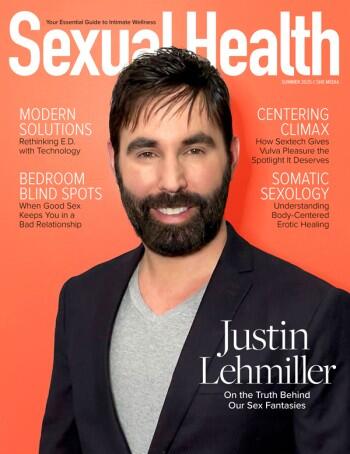One of the things I’ve noticed over the years is that there’s a disconnection between some groups of people who could be natural allies. Sexologists want to understand sex, and sex therapists and coaches are dedicated to helping people improve their sex lives. And as the sex retail world embraces the value of sexual wellness, more companies are discovering how much there is to know about sexuality. That creates valuable opportunities for collaboration.
Of course, each of these groups has distinct goals. Sexologists want to explore the scientific underpinnings of sex. Sex therapists and coaches want to help their clients have the best relationships and sexual pleasure they can have. And retailers and manufacturers want to sell their products. In the past, these different objectives were often in some tension with each other, especially when toys were made by companies that didn’t understand how people use their products or what customers want to get from their experiences. But these different missions are now becoming more closely aligned than ever before.
As people started speaking up and coming out of the sex toy closet, lots of manufacturers started to develop products that meet consumers’ needs better.
As people started speaking up and coming out of the sex toy closet, lots of manufacturers started to develop products that meet consumers’ needs better. And as more tips and ideas about sexual pleasure and toys became widely available, potential customers started becoming better informed about their options. That means that it’s no longer enough to whip out a product line and figure it’ll be what customers want. Retailers need to pay more attention to sex research and to what customers have to say. And that’s where it becomes valuable to work with the experts.
The folks at the Center for Sexual Health Promotion have been coming out with some useful stuff. For example, they’ve found that women in their forties have more positive feelings about lubricants than younger women. Another study showed that more than half of the women asked had used a vibrator, with almost one in four doing so in the past month. Almost 45 percent of men have used vibrators during partnered sex (and 91 percent of them were straight).
This is the kind of research that sex retailers can use and you can contact the folks at CSHP for copies of any of their work. The more you know about how customers use your products, the more you can shape your marketing and your information to appeal to them.
It’s not just sex researchers who can help the industry. I recently attended the national conference of the American Association of Sexuality Educators, Counselors, and Therapists. I was really happy to see that, in addition to the companies that focus specifically on sexual health, California Exotics had a table staffed by Chuck and Jo-ann Bird.
The Birds are clinical sexologists and relationship coaches, so they spend a lot of time talking with people about their sexual challenges. As part of their practice, they debunk myths about toys, explain which products could help them with their difficulties, and teach them how to use them to get the most out of their experience. At the conference, the Birds gave a presentation to a packed room on how sex toys can help couples improve their sexual health and wellness.
The response to their talk highlights how much these professionals want to know how they can help their clients have great sex lives. As Desireé Duffie from CalExotics said, “There is still a taboo associated with sex toys, even among sex professionals. Being able to show them that we, as a pleasure product manufacturer, are aligned with their mission, is incredibly powerful and necessary. It creates a win-win situation.” Chuck Bird added, “It would be wonderful to have other sexuality professionals like ourselves become knowledgeable about the health and wellness benefits of sex toys/aids so they can go teach other sexuality professionals and their clients.”
The big advantage to this is that sex therapists and coaches work with a lot of people who are already pre-screened as being invested in their sex lives. That makes them more likely to follow through on making a suggested purchase. So it’s worth a little effort to make it happen.
If you have in-store workshops, find some local sex coaches or therapists and ask them to give a talk about their area of expertise. Or recruit them to write an article for your site or answer customer questions. And if the collaboration grows, consider sending them to give a talk at a conference. Just be aware that their workshops or articles need to focus on sexual well-being and let sales flow from that. If you push the sales too hard, you’ll lose credibility. That’s always the balance in these kinds of partnerships.
Both sex researchers and professionals like sex coaches and therapists have a lot to offer the sex retail world. It takes a bit of effort to connect with them and figure out how their work will best support your brand, and of course, it’s not going to be a good fit for everyone. But it’s worth considering, given how much potential there is for it to increase your value for your customers.
Charlie Glickman PhD is a sexuality speaker, trainer, writer, blogger, and coach. He’s an AASECT-certified sex educator and has been working in this field for over 20 years. Charlie is the co-author of The Ultimate Guide to Prostate Pleasure: Erotic Exploration for Men and Their Partners. Find out more about him at www.charlieglickman.com or on Twitter and Facebook.







